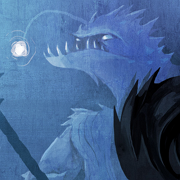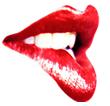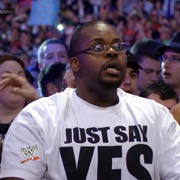|
This thread is for discussion of the fantastic debut novel from Hallberg, which was purchased for two million dollars by Knopf and came out in late 2015. Several people in the Quit Being a loving Child thread are reading it, and I thought it might be nice to have a little place to chat about it, though I don't expect this thread to move very quickly. What is City on Fire? The novel is set mostly in 1970s New York City, leading up to the 1977 New York City blackout. The novel follows the lives of several intertwined characters with a seven-episode structure inspired by television shows like The Wire.. The characters include two young punk music enthusiasts, a mixed-race gay couple, an old private eye, a dangerous anarchist, and several others. Linking them all together is the victim of a shooting in Central Park on New Year's Eve. Also included in the novel are interludes between the episodes that contain "in-universe" artifacts like a classic 'zine. It is my book of the year for 2015 and received praise around the literary world. Not only is the story compelling and the characters endearing, but the writing is stellar. I hope more people read the book and join us here to discuss it. blue squares fucked around with this message at 02:26 on Jan 27, 2016 |
|
|
|

|
| # ? Apr 18, 2024 12:45 |
|
One of the characters that most surprised me was Jenny. She sort of came out of nowhere, appearing in the middle of the book and falling into an unexpected friendship/romance with Richard. And her adventure during the blackout with Mercer was great. But of course Charlie was my favorite. What do people think of the interludes? Were they gimmicks or did they add to the novel in ways that conventional stuff couldn't? The 'zine, at least, couldn't have been done any other way (even if I started to skim the issue itself).
|
|
|
|
I'm about 2/3rds through the book, I think; just a few chapters into part five. Really enjoying it, and not only for the writing but feeling compelled to know what happens (or happened). I'm going to withhold effortposting until i'm done, but hopefully I'll finish it before the thread dies 
|
|
|
|
I didn't know it was sold for 2mil suddenly that pissy mfa guys article makes way more sense
|
|
|
|
Sounds interesting - I've been working my way through a non-fiction book called Love Goes Out to Buildings On Fire by Will Hermes - as the title suggests it is about the NYC music scene in the 70's, specifically it is a very in depth investigation of what was going on musically in NYC from January 1st 1973 until December 31st 1977 and is done sort of in a series of little vignettes. This novel seems like it would fit right alongside it.
|
|
|
|
I really liked this book when I read it back in November; the intertwining plots and the varying viewpoints really seemed to give a fairly comprehensive view of the times. William's art project - the attempt to re-create the whole city with his art - seemed like what Hallberg was trying to do, in a way. One of my favorite parts definitely had to be Richard's Rolling-Stone/Hunter-S.-Thompson-esque Fireworkers article.
|
|
|
|
I finally finished this. I think that Hallberg is a good writer but it felt too much to me like he was trying to write an Important Book. It seemed like it was written for the screen with the way scenes were framed and characters intersected, the episodic nature of the book and leaps through the timeline felt very much like a dense TV show. I didn't dislike it, I just couldn't connect. I read books on a very literal level and although I found the story interesting it seemed too humorless to me. It felt Pynchon-esque without the whacked out jokes, even though many situations seemed to lend themselves to that.
|
|
|
|
Cloks posted:It seemed like it was written for the screen Well licensing it for tv or film is the only way Knopf will see even a fraction of their two million back. The book may be a critical success but it sure isn't a financial one.
|
|
|
|
I rarely follow literary world close enough to be hyped for books long before they come out, but I was aware of City in Fire like year ago, it certainly hasn't picked up steam way I expected. I think Art of Fielding, another hype book did way better in sales?
|
|
|
|
mallamp posted:I rarely follow literary world close enough to be hyped for books long before they come out, but I was aware of City in Fire like year ago, it certainly hasn't picked up steam way I expected. I think Art of Fielding, another hype book did way better in sales? Anytime you have a book of this length it's going to have a limited market. A lot of people just aren't going to pick up something that long.
|
|
|
|
The Atlantic actually ran an article a while back about the aesthetic influence of television on fiction in general and on City on Fire in particular: http://www.theatlantic.com/entertainment/archive/2015/10/city-on-fire-review/411097/
|
|
|
|
Still a little annoyed by how incestuous the character relationships are starting to feel but its a minor gripe. He seems to want to make an epic sprawling tale of New York while simultaneously keeping all the characters within arms reach of each other.
|
|
|
|
Well you know what they say, New York is the biggest small town in the world
|
|
|
|
I swear to god if it turns out Amory Gould is the one who had Sam shot I am gonna be loving pissed
|
|
|
|
Mel Mudkiper posted:I swear to god if it turns out Amory Gould is the one who had Sam shot I am gonna be loving pissed SPOILER ANSWER: He is not the one who shot Sam
|
|
|
|
blue squares posted:SPOILER ANSWER: He is not the one who shot Sam Cool I guess I will look at that response in 600 pages
|
|
|
|
I keep finding myself more and more frustrated with Amory and Nicky. They are just really awfully written characters and their presence in the novel is bringing the whole thing down. I just got done with Regan's rape scene and am actually kind of furious as to how it was done. The narrative pay off of the whole scene was just too implausibly villainous. People don't act like that, even corrupt real estate executives. I kind of compare the scene to something similar in Freedom by Franzen which was handled much better. The characters there acted loathsomely but at least plausibly. I feel taken out of the story right now.
|
|
|
|
It's a shame that you're bothered so much by those two. Amory I never really got and found him a caricature, but Nicky was more interesting to me. I never understood him beyond "oh he's kinda crazy" but the book spends more time with him that you see multiple sides of his personality. I wonder if he represents a very real spirit that was alive in that time in New York City, the sort of endpoint of punk music/culture without a filter of humanity that stops people from going full anarchist.
|
|
|
|
blue squares posted:It's a shame that you're bothered so much by those two. Amory I never really got and found him a caricature, but Nicky was more interesting to me. I never understood him beyond "oh he's kinda crazy" but the book spends more time with him that you see multiple sides of his personality. I wonder if he represents a very real spirit that was alive in that time in New York City, the sort of endpoint of punk music/culture without a filter of humanity that stops people from going full anarchist. That's the thing though, characters should be characters, not symbols. If Nicky is meant to represent the political and tumultuous spirit of 70s Era New York punk wrestling with its impossibility than the novel should make him that. Nicky seems more like an idea the other characters react with more than a person himself.
|
|
|
|
gently caress YEA
|
|
|
|

|
| # ? Apr 18, 2024 12:45 |
|
I finished City on Fire the other night. I enjoyed it quite a bit. I suppose I feel the same as blue squares/mel about Amory; there is not much depth there and I wish there had been more. Nicky I didn't mind, I guess because I have sort of known the type. I was pretty interested in all the other characters and the coincidental aspects of the story didn't bug me. I'm not a super critical reader, though. re: tv/film discussion upthread, I remember reading somewhere that Hallberg intentionally styled the "episodic" structure of the book after shows like The Wire. Maybe it's even in that Atlantic article . . .
|
|
|
















